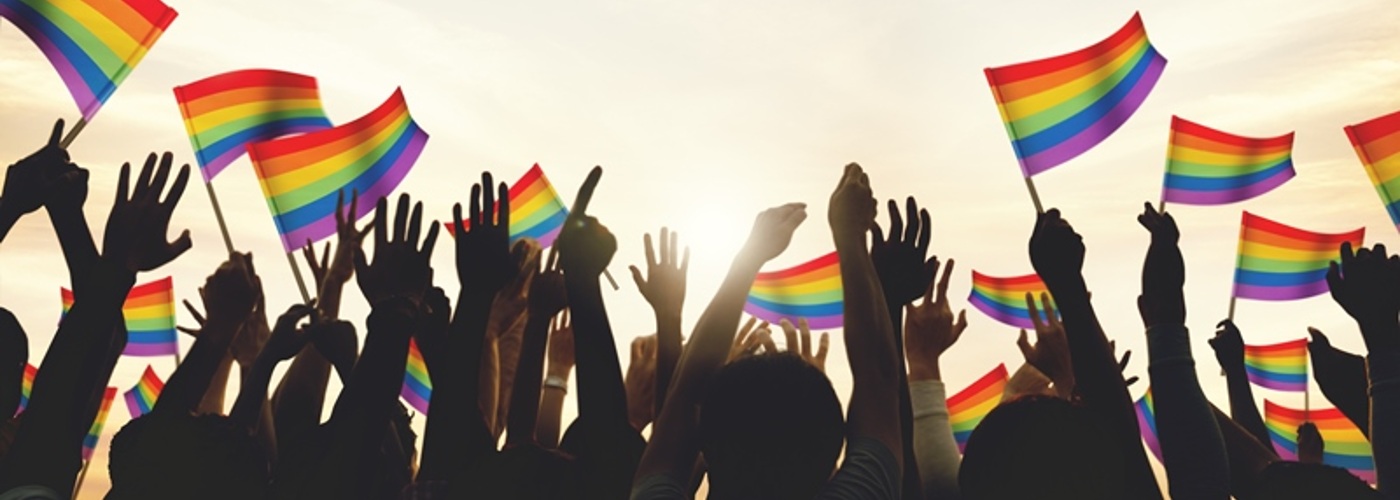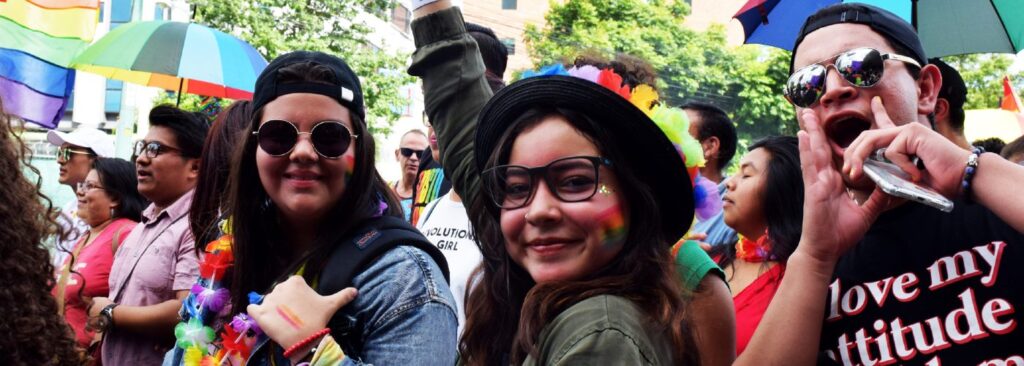By Saida Ali, Global Program Manager Free to be Me
In February this year, we witnessed the first openly intersex person being sworn in as a Commissioner of the Kenya National Commission on Human Rights (KNCHR). This is groundbreaking!
Dr. Dennis Wamalwa is the first intersex Kenyan to occupy a high-ranking public office, more so a state agency mandated to facilitate human rights norms and standards in the country.
It is also the first time ever that an intersex person has occupied an eminent human rights office in the world. During the vetting process, Dr. Wamalwa narrated to the Justice and Legal Affairs Committee the human rights violations he has been subjected to because of intersexuality. He told the committee that being an intersex person is misunderstood, and many continue to experience extreme forms of discrimination and violence. According to the Office of the United Nations High Commissioner for Human Rights, intersex people are individuals born with any of several sex characteristics including chromosome patterns, gonads, or genitals that do not fit typical binary notions of male or female bodies.
Significant steps in inclusivity of intersex persons
This is not the first time Kenya has taken a significant stride in recognition of intersex persons. In August 2019, Kenya counted and included intersex persons in its population census, making it the first African country to do so. Census data is used as the yardstick for equitable allocation of development funds in sectors such as education, healthcare and housing, all of which are critical to addressing the social and economic inequalities faced by intersex persons.
According to the census, Kenya officially has 1,524 recorded intersex persons. However, the numbers are predicted to be higher. In its report: “Equal in dignity and rights: promoting the rights of intersex persons in Kenya,” the KNCHR estimates that 1 in 200 or 1 in 300 individuals globally are born with an intersex variation. According to the Commission, the invisibility of the actual number of intersex persons in the country indicates the level and degree of stigma. Commissioner Wamalwa’s new assignment is clearly cut out.
To Dr. Wamalwa, serving as Commissioner is an opportunity to advance a culture of respect for human rights for all people. He committed to ensuring the implementation of the recommendations from the 2017 taskforce on: “Policy, legal, institutional and administrative reforms regarding Intersex persons in Kenya.”
Recognition
Ryan Muiruri, a member of the Intersex Persons Society of Kenya, is hopeful that the appointment of Commissioner Wamalwa will ensure that the human rights of Intersex persons will not be relegated to the back burner.
I see Dr. Wamalwa’s appointment as a cause célèbre due to the precedent it sets. I am not the only one who sees it this way. Ryan, who was present at Dr. Wamalwa’s swearing in ceremony, says, “This is exciting news because this is the first time an intersex person has taken up an instrumental role in this commission to bolster human rights especially for intersex groups. Finally, the state recognizes us and sees us as normal people who can take up leadership roles.”
I sat down with Ryan to gain insight into some of the quick wins from this big milestone, and we discussed what it means for the community at large.
Ryan: “The fact that KNHRC is Kenya’s highest human rights institution as mandated by the Constitution of Kenya is quite significant. It’s an opportunity to make sure our human rights issues are recognized. It gives us room to dream as people who are often denied employment opportunities.”
I yearn for recognition as a normal human being.
This is also a glimmer of hope for parents with intersex children. Their children can stop living in seclusion and become recognized in society.
“I yearn for recognition as a normal human being who can equally contribute to the economic growth of this country and not be treated as a second-class citizen. Stigma and discrimination are the biggest enablers of poverty amongst intersex persons. Many drop out of school and are not able to get jobs; making the cycle continue. And unfortunately this has birthed a norm where many parents with intersex children see no need of investing in their education.”
Intersex persons continue to face multiple forms of discrimination and violations, which require a multi-sectoral policy response including and not limited to education, healthcare, the law, registration of persons, and employment policies. As I ended my conversation with Ryan, his resolve was never clearer; he sees opportunities in addressing these issues through working closely with Commissioner Wamalwa. In fact, he is elated that intersex issues will no longer be ignored.
Our message on IDAHOT
Free to be Me recognizes that intersex people’s human rights – including economic rights – are often overlooked. They are the worst hit by economic deprivation.
I celebrate them this IDAHOT. Reflecting on this year’s theme: “Our bodies, Our lives, Our rights,” I am reminded that many intersex people still face the most vile forms of violence. From forced sterilization to physical violence, a lot lies in the journey ahead when it comes to realizing their rights not just on paper but in reality.
Nonetheless, we will soldier on with demanding for their rights and establishing societies where they can freely contribute and be their authentic selves. Our promise remains untouched: “Free to be Me.”
Hivos is taking practical steps in ensuring support to groups that work with intersex persons. As one of their biggest allies, we will engage with them in realizing Free to be Me’s ambition of advancing a solid movement that advocates for the human rights of sexual and gender minorities.


